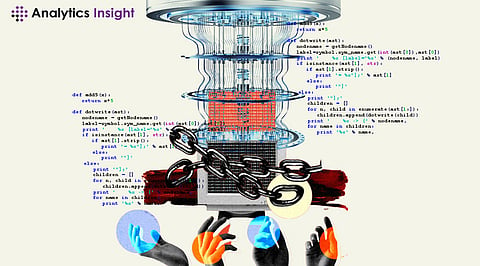
Quantum Computing: The Emergence of New Languages
The world of quantum computing is rapidly advancing, and with it, the need for new programming languages that can harness its power. As we move towards a future where quantum computers will become an integral part of our lives, it’s essential to understand the role of programming languages in unlocking its potential.
The Rise of Quantum Programming Languages
Quantum programming languages are designed to write programs that can run on quantum computers. These languages are vastly different from classical computing programs and require a deep understanding of quantum mechanics and mathematics. As quantum computing becomes more prevalent in industries, the demand for proficient developers who can work with these languages will increase.
What Makes a Quantum Programming Language?
A quantum programming language is a programming language specifically designed to write programs for quantum computers. These languages are categorized based on their ability to assess and qualify quantum algorithms and their execution, as well as their capacity to scrutinize the basics of a quantum framework, including entanglement, superposition, and qubits.
Types of Quantum Computing Languages
The number of quantum computing languages is growing rapidly. Based on an open-source mindset of sharing information and assets, quantum programming languages have been outlined to help quantum algorithms utilize high-level development. Researchers are pioneering new languages for quantum computing to address the unique challenges of harnessing quantum phenomena.
 Emergence of New Languages for Quantum Computing
Emergence of New Languages for Quantum Computing
Top 5 Quantum Programming Languages
With the rapid growth of quantum computing, several programming languages have emerged as frontrunners in the industry. Here are the top 5 quantum programming languages in 2024:
Python
Python is an excellent choice for beginners and experts alike. With numerous packages like QuTip available, Python makes working with quantum frameworks easier. Its simplicity and ease of learning make it an attractive option for those looking to venture into quantum computing.
Qiskit
Qiskit is an open-source Software Development Kit (SDK) for working with quantum computers at the level of circuits, beats, and algorithms. Developed by IBM, Qiskit provides tools for creating and controlling quantum programs and running them on model quantum devices on IBM Quantum Experience or test systems on a local computer.
Ocean
Ocean is a suite of open-source Python tools available through the Ocean Software Development Kit on both the D-Wave GitHub store and inside the Leap quantum cloud service. Developed by D-Wave, Ocean allows engineers to explore and utilize the power of D-Wave’s Advantage quantum computer to solve complex problems.
Q# (QUANTUM COMPUTING PROGRAMMING ALGORITHM)
Q# is a domain-specific programming language used for communicating quantum algorithms. Developed by Microsoft, Q# supports common classical flow control during the execution of an algorithm, making it simpler to compose things that depend on intermediate measurements.
Cirq (Google AI Programming Language)
Cirq is an open-source system for noisy intermediate-scale quantum (NISQ) computers. Developed by Google Quantum AI, Cirq comes with built-in test systems, both for wave capacities and density matrices, which can handle noisy quantum channels using Monte Carlo or full-density lattice simulations.
As we move forward in the realm of quantum computing, the importance of these programming languages will only continue to grow. With new languages emerging and existing ones evolving, the possibilities for innovation are endless.
 Emergence of New Languages for Quantum Computing
Emergence of New Languages for Quantum Computing














